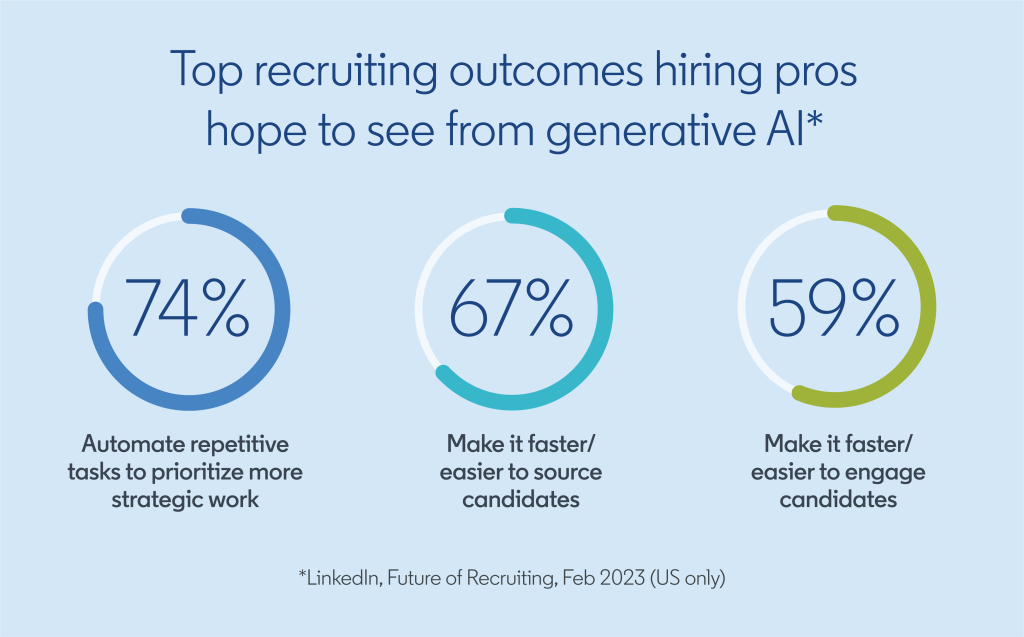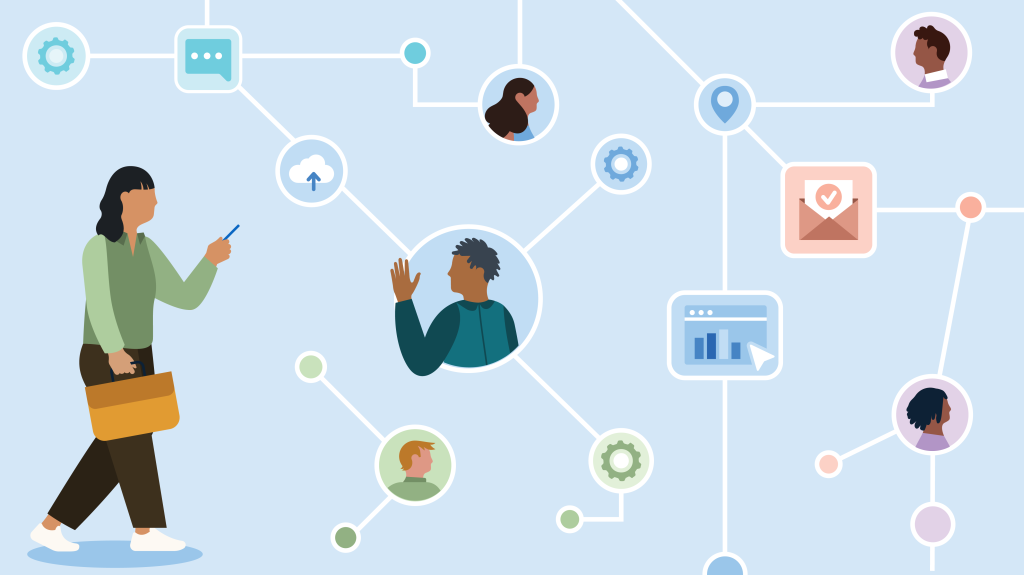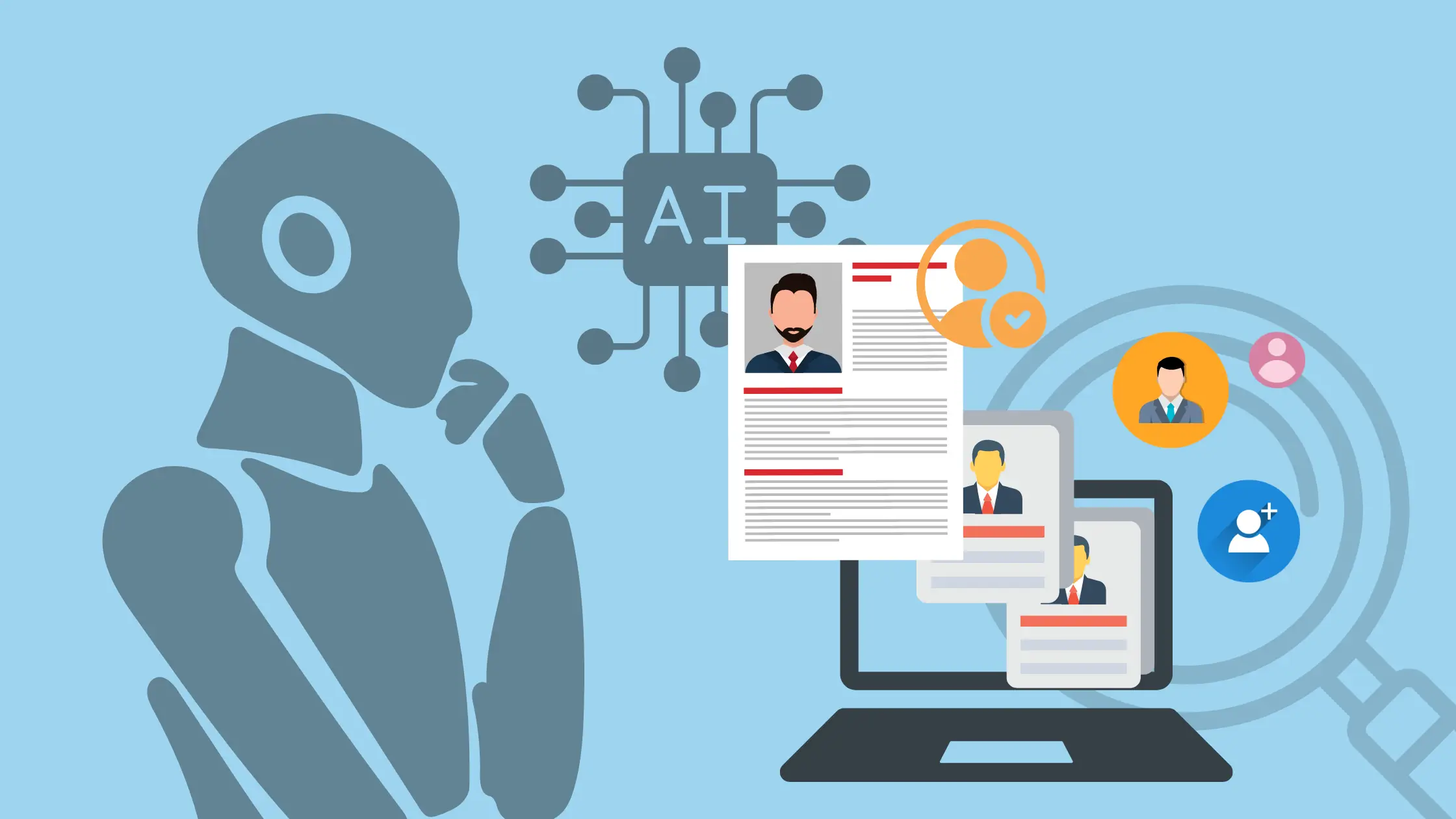The hiring process is evolving faster than ever—and Artificial Intelligence (AI) is at the centre of this change. From automated resume screening to video interviews powered by machine learning, AI is no longer a futuristic concept. It’s here and changing how companies attract, assess, and hire talent.
If you’re job hunting or working in recruitment, knowing how AI is revolutionizing the recruitment process in 2025 can make you flexible, prepared, and ahead of the curve.
AI in Hiring: What’s Happening Right Now
AI in the hiring process isn’t just about scanning resumes anymore. Companies now use AI recruitment tools, from creating job descriptions to evaluating candidates’ body language in video interviews. These tools can be used to save time, automate manual screening, and enable more data-driven decisions.
For instance, applications such as HireVue and Pymetrics utilize AI to carry out initial rounds of interviews, measure tone and facial responses, and forecast job fit. Applicant Tracking Systems (ATS), which frequently are driven by AI, can pre-filter thousands of resumes and list only those with fitting keywords or qualifications. This means your resume gets to be viewed in the first place solely due to AI.

Benefits of Using AI in Recruitment
One of the greatest benefits of AI is speed. Traditional hiring takes weeks or months. AI-powered platforms save time-to-hire by streamlining repetitive tasks such as resume screening and candidate matching. For recruiters, this translates to less paperwork time and more time spent on high-quality interactions.
AI can also improve candidate experience. Some platforms use chatbots to guide applicants through hiring, answer questions in real time, and schedule interviews—creating a smoother experience for job seekers. Many job seekers don’t even realise that AI powers the friendly chatbot they’re talking to.
Another benefit is consistency. Unlike human recruiters, AI systems don’t get tired or distracted. They apply the same screening criteria across all applications, which can reduce unintentional bias and ensure that each candidate is evaluated fairly—at least in theory.
Where AI May Fall Short: The Problem of Bias
While it’s got its strengths, hiring AI isn’t without problems. One of the largest is algorithmic bias. If data that an AI system is trained on contains biased patterns—such as preferring candidates who come from certain backgrounds, universities, or areas—then the AI can replicate and even amplify those biases.
A famous case involved an AI hiring tool developed by Amazon that unintentionally penalised resumes containing the word “women” or references to female-specific activities. The system had learned from past hiring patterns that showed a male preference in engineering roles.

This example shows why it’s essential to combine AI with human oversight. While AI helps speed up hiring, humans must review final decisions and monitor algorithms to ensure fairness.
How Candidates Can Prepare for AI-Driven Hiring
If you’re applying for jobs in 2025, your first screening is through AI. To improve your chances of success, tailor your resume with the keywords from the job description. Use a clean, ATS-friendly layout without images, tables, or fancy fonts that may confuse automated systems.
When preparing for interviews, understand that some platforms will analyse your voice tone, facial expressions, and body language. Practice clear, confident communication—even in one-way video interviews where no human is on the other end.
And most importantly, focus on clarity. Whether it’s your resume or answers, clarity helps humans and machines understand your strengths.
Wondering how to showcase your achievements in a resume? Read our blog to know more
What This Means for Recruiters
For recruiters, AI is a strong ally. It can accelerate the process of hiring, minimize mundane tasks, and enhance decision-making. But it shouldn’t displace human judgment. The most effective recruitment results occur when AI augments—not replaces—human touch, empathy, and ethical guidance.
Recruiters must also remain abreast of the most current tools and trends. AI recruitment software keeps changing, and old methods might result in lost opportunities or compliance issues. In the long term, embracing AI responsibly can assist in creating stronger, more diverse hiring approaches.
AI is here to stay in recruitment. It’s already altering the way businesses source, assess, and hire talent. Although it offers unprecedented efficiency and promise, it introduces new challenges—particularly in terms of fairness and transparency.
Whether you’re a job candidate or an employer, being aware of how AI influences the hiring process will make you a more informed decision-maker. The trick is to leverage technology’s advantages while still keeping the human component that hiring ultimately hinges on.
Want to get ahead in today’s AI-driven hiring world? Use Salahkart to build AI-friendly resumes that pass ATS scans, use job-relevant keywords, and help you get noticed—by both algorithms and recruiters.
Start building your future-ready resume today on Salahkart.
Would you like me to adapt this into a LinkedIn article, Instagram carousel, or downloadable PDF for your content calendar?

Leave a Reply